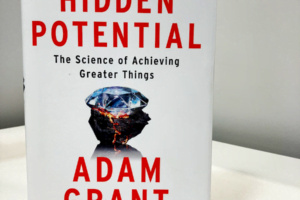- MENLO GROUP
- 480.525.5362 (Call or Text)
- 480.535.5854
- info@menlocre.com
- Grafton Milne, Designated Broker
- Owner Portal | Tenant Portal

Common Commercial Real Estate Lease Clauses
July 19, 2021
Selecting a New Location for Your Business
August 5, 2021
Radical Candor by Kim Scott aims to help readers become more effective leaders through open communication. Scott defines Radical Candor as “challenging directly and caring personally.” Our team recently finished the book for the second time, and we wanted to share some of our key takeaways.
Challenge Directly
Feedback is crucial to helping team members improve. When providing criticism, Scott encourages us to be gentle yet direct, avoid personalizing and offer tangible help. Our team also discussed the importance of considering the timing and medium in which feedback is given—usually it should be shared immediately and in person. Praise is another important type of feedback and should be contextualized, personal and specific.
Care Personally
No matter the role or industry, relationships are core parts of our jobs. We want to create a culture where team members are able to bring the best versions of themselves to work, which requires relationship building and creating trust.
At Menlo Group, we begin every meeting by sharing our weekly personal and professional highlights. This exercise helps us care more deeply about our coworkers. We also hold quarterly team events to encourage relationship building.
We can’t care for others if we don’t first take care of ourselves. The book discusses the importance of staying centered through a personalized formula of rest, exercise, travel and hobbies.
Our team has improved at having Radically Candid conversations since the last time we read this book. Open communication leads to better collaboration, which enables us to achieve greater results that we could on our own. Radical Candor takes effort, but the effort is worth it to improve ourselves and our team. We look forward to continuing to put these principles into action.
Want to read alongside Menlo? Sign up for our Virtual Book Club and receive biweekly emails with discussion questions and chapter insights.


